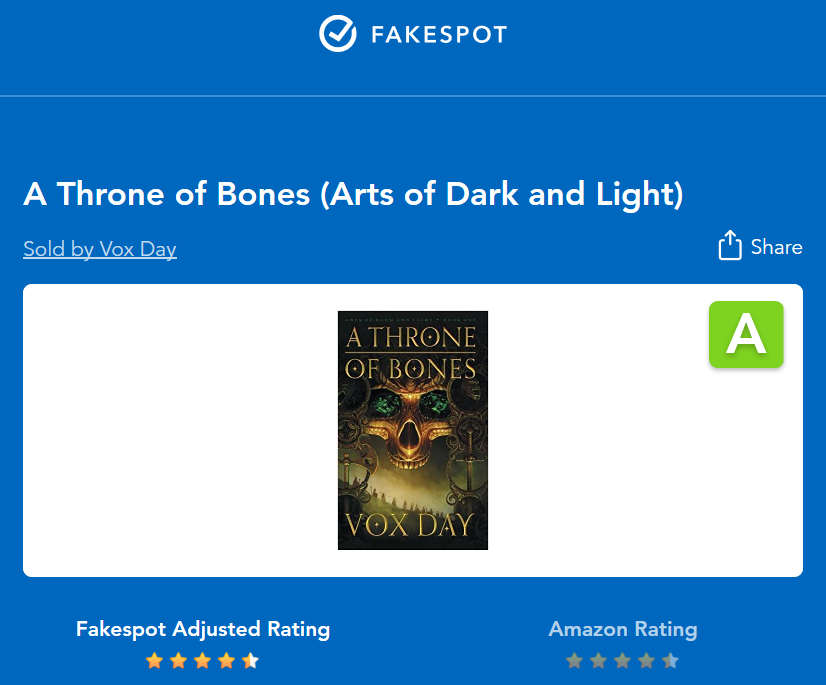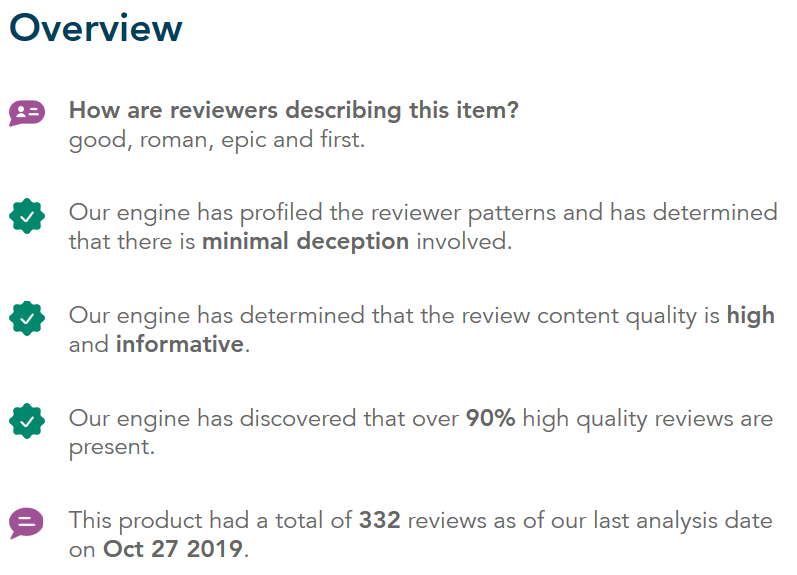Earlier today, a leftist left a negative comment on a review I did in 2016 of Vox Day’s “A Throne of Bones”. They ended by linking to a hatepost claiming the positive Amazon reviews were deceptive based on an analysis by a site called Fakepost.com from 2017. Because, of course, the accuracy of a self-appointed analysis site using an unpublished algorithm is beyond question. However, when I requested a re-analysis, the book listing now gets an ‘A’. I took an archive as one suspects the algorithm may now change. However for posterity …

According to Fakespot the reviews on ‘A Throne of Bones’ are 90% high quality and it deserves its average 4.5/5 stars.
For a supposedly unimportant author I have seen a surprising number of multi-part, serialised, chapter-by-chapter reviews from left wingers, like the one that inspired this post. You do not have to agree with Vox Day’s politics to like his work, or find the vilification of dissident authors distasteful. Day has produced a number of popular products meeting the promises he set out to his market. The only real criticism is that release has sometimes been slightly slower than hoped for (for example, of the expanded edition of the sequel to ‘A Throne of Bones’). Day however is not in bad company – Robert Jordan died before finishing his epic and PC Hodgell’s Kencyrath series was begun in 1982 and still is not finished.



Pingback: Vox Day objects to a two-year old post – Camestros Felapton
“However, when I requested a re-analysis, the book listing now gets an ‘A’. I took an archive as one suspects the algorithm may now change. However for posterity …”
From the so called hate post
“”Ironically, the reviews that Vox complains about, probably improve the Fakespot rating of the reviews – i.e. many negative reviews from people will make the rating of the quality of the reviews better. I also don’t see a way in general of Fakespot distinguishing between fake NEGATIVE reviews -i.e. showing that the poor ratings of a book aren’t genuine.
…[A note of caution: the site doesn’t re-analyse automatically so the analysis you get may be out of date. The initial ratings for those two books were different but changed when I clicked the option to re-analyse]
I also don’t see a way in general of Fakespot distinguishing between fake NEGATIVE reviews -i.e. showing that the poor ratings of a book aren’t genuine. The basic report seems to assume that fake reviews are for the purpose of the seller artificially boosting a book rather than somebody maliciously trying to make a book look bad.”
Pingback: Mailvox: spotting quality – Vox Popoli